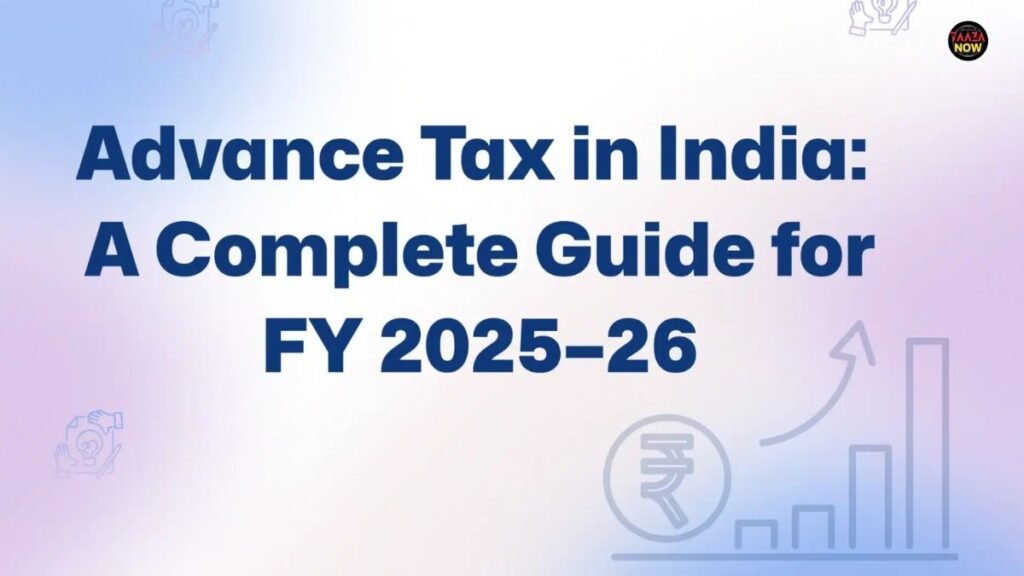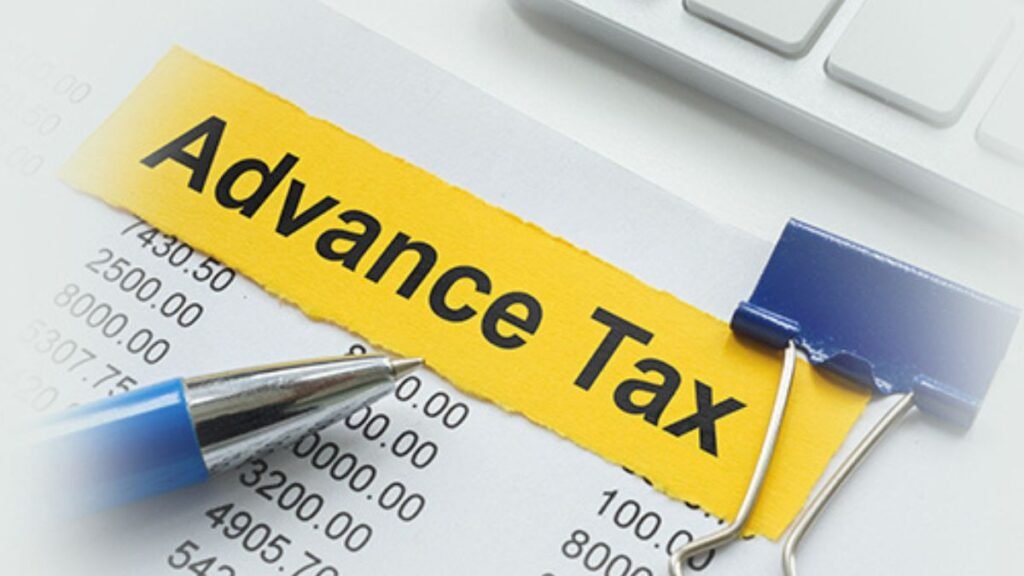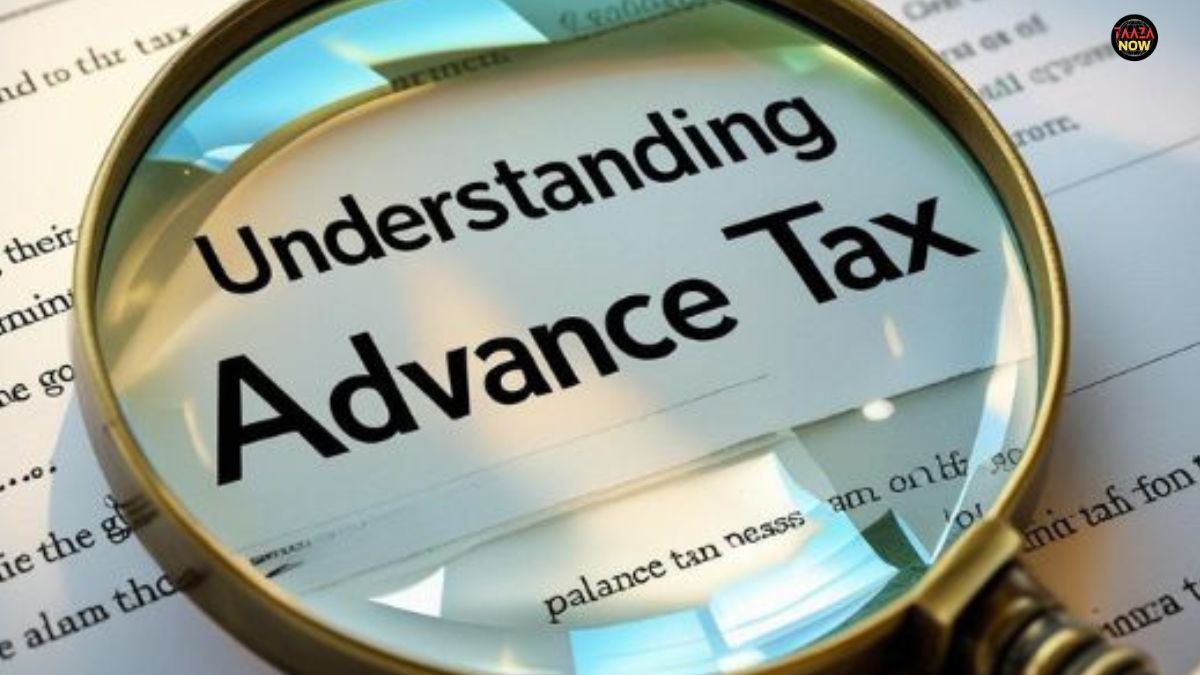When it comes to taxation in India, timely compliance is crucial. One of the most important aspects of tax compliance is advance tax payment, which ensures that individuals and businesses pay taxes on income as it is earned, rather than waiting until the end of the financial year. For the financial year 2025-26 (assessment year 2026-27), the second quarterly installment of advance tax payment is due on September 15, 2025. Taxpayers with liabilities exceeding ₹10,000 must pay the installment on time to avoid penalties and interest.
In this article, we will dive deep into what advance tax payment means, who needs to pay it, the due dates, penalties for missing deadlines, and the exemptions available.
What is an Advance Tax Payment?
Advance tax payment is commonly referred to as the “pay as you earn” tax. Instead of paying the entire income tax at the end of the year, eligible taxpayers are required to pay it in four installments spread across the financial year.
The idea behind advance tax payment is simple — the government collects taxes periodically to maintain a steady flow of revenue, and taxpayers avoid the burden of paying a large lump sum at the end of the year.
Any taxpayer whose annual tax liability is ₹10,000 or more must make an advance tax payment. This applies to both individuals and businesses. However, there are certain exceptions:
- Salaried individuals may not need to pay advance tax if their employer deducts the correct TDS (Tax Deducted at Source) and they have no other income.
- Senior citizens aged 60 and above are exempt from advance tax payment if they do not have income from business or profession.
Who Needs to Pay Advance Tax?

The following categories of taxpayers must make an advance tax payment:
- Self-employed professionals and business owners: Since they don’t have TDS deducted automatically, they are required to calculate and pay taxes in advance.
- Salaried individuals with additional income: Even if TDS is deducted on salary, they must pay advance tax on income from capital gains, property, interest, or freelancing.
- Corporations and companies: They are mandated to pay advance tax payments on their estimated profits.
For example, suppose a salaried professional earns a salary with proper TDS deductions but also sells stocks for a profit. In that case, they must calculate tax on those capital gains and pay it as advance tax.
Also Read – Urban Company IPO Allotment Status: Step-by-Step Guide to Check Online
Advance Tax Payment Due Dates for FY 2025-26
The Income-tax Act requires taxpayers to pay advance tax in four installments during the financial year. Missing these deadlines may lead to penal interest. Here are the key due dates:
- On or before June 15 (Q1): At least 15% of the estimated tax liability must be paid.
- On or before September 15 (Q2): At least 45% of the estimated tax liability, minus any tax already paid, must be cleared.
- On or before December 15 (Q3): At least 75% of the estimated tax liability, minus earlier payments, must be deposited.
- On or before March 15 (Q4): The full 100% of the tax liability must be paid.
These installments ensure that the tax burden is distributed evenly throughout the year, making advance tax payments more manageable.
What Happens if You Miss the Advance Tax Deadline?
Failing to make timely advance tax payment can attract penalties in the form of interest charges under the Income-tax Act:
- Section 234B: If a taxpayer fails to pay advance tax or pays less than 90% of their total liability, they are charged 1% interest per month until full payment is made.
- Section 234C: If the taxpayer fails to pay the required percentage of advance tax by the deadlines (June, September, December, March), they will face an additional 1% interest for every month of delay.
For instance, if by September 15 a taxpayer has not paid at least 45% of their estimated liability, Section 234C applies.
When Section 234C is Applied
Interest under Section 234C is charged if the following thresholds are not met:
- Less than 12% of tax liability paid by June 15
- Less than 36% of tax liability paid by September 15
- Less than 75% of tax liability paid by December 15
- Less than 100% of tax liability paid by March 15
This highlights the importance of sticking to the advance tax payment schedule.
Exceptions to Penal Charges
Interestingly, the law provides relief in certain cases. No penal interest is levied under Section 234C if the shortfall in advance tax payment is due to income that is difficult to estimate. These include:
- Capital gains from the sale of assets
- Winnings from lotteries, gambling, or similar activities
- First-time business or professional income
- Dividend income
However, taxpayers must ensure that tax on such income is paid in the following installment or before the end of the financial year to claim relief.
How to Make an Advance Tax Payment?
Paying advance tax has become easier with online methods. Here’s how you can do it:
- Visit the Income Tax Department’s e-filing portal.
- Navigate to the e-Pay Tax section.
- Log in with your PAN and select the option for advance tax payment.
- Enter the necessary details, calculate the liability, and make payment through net banking, UPI, or debit card.
- Save the acknowledgment receipt for records.
Taxpayers can also make payments offline by visiting designated bank branches.
Importance of Advance Tax Payment

Timely advance tax payment offers several advantages:
- Avoids penalties and interest charges under Sections 234B and 234C.
- Eases financial planning, since payments are spread across four installments.
- Maintains a good compliance history, which is helpful during scrutiny or audits.
- Supports government revenue flow, ensuring timely infrastructure and welfare spending.
Taazanow.com- Click Here

